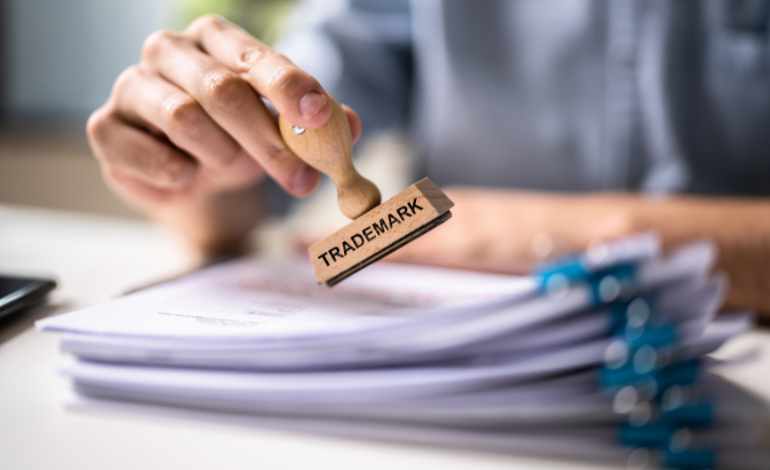
What is a Trademark Search?
In today’s fast-paced business world, protecting intellectual property is crucial. One way to safeguard a brand or business is through trademark registration. However, before initiating the registration process, it is essential to conduct a thorough trademark search. This article aims to explain what a trademark search is, its importance, and how it helps businesses in establishing and protecting their unique brand identity.
What is Trademark?
A trademark is a recognizable sign, design, or expression that distinguishes products or services of a particular source from those of others. It serves as a symbol of quality and helps businesses build brand reputation and consumer trust. Trademarks can include logos, names, slogans, or even unique packaging.
The Importance of Trademark Search
A trademark search is a critical step in the brand protection process. It involves searching existing trademarks to determine their availability and assess potential conflicts. By conducting a thorough search, businesses can avoid infringing on existing trademarks and legal disputes, which could be time-consuming and costly.
Conducting a Trademark Search
To conduct a trademark search, businesses need to explore various sources such as trademark databases, online directories, and other relevant platforms. The goal is to identify any similar or identical trademarks that may conflict with the proposed mark. A comprehensive search involves examining registered trademarks, pending applications, and common law trademarks.
Benefits of a Comprehensive Trademark Search
A comprehensive trademark search offers several benefits. Firstly, it helps businesses make informed decisions before investing time and resources in branding and marketing campaigns. Secondly, it reduces the risk of legal disputes and potential trademark infringement claims. Lastly, a thorough search enhances the chances of successful trademark registration.
Avoiding Infringement Issues
Conducting a trademark search ensures businesses do not inadvertently infringe on existing trademarks. Infringement occurs when a company uses a mark that is confusingly similar to an existing trademark, leading to consumer confusion. By identifying potential conflicts early on, businesses can modify their branding strategy to avoid legal complications.
Navigating Trademark Databases
Trademark databases are valuable resources for conducting a trademark search. These databases contain registered trademarks, pending applications, and other relevant information. The United States Patent and Trademark Office (USPTO) provides a searchable online database known as the Trademark Electronic Search System (TESS). Other countries have similar online databases that can be accessed to conduct local or international searches.
Hiring a Trademark Attorney
While conducting a trademark search independently is possible, seeking professional assistance from a trademark attorney is advisable. An experienced attorney can provide valuable insights, navigate complex legal requirements, and ensure a more comprehensive search. They can also assist in interpreting search results and advise on the best course of action.
Trademark Search Tools
Several online tools can assist businesses in conducting a trademark search. These tools utilize advanced algorithms and databases to identify potential conflicts. Some popular trademark search tools include Trademarkia, WIPO Global Brand Database, and USPTO’s TESS. Utilizing these tools can streamline the search process and provide more accurate results.
Common Challenges in Trademark Searching
Trademark searching can present challenges due to the vast number of existing trademarks and the possibility of conflicting marks. Some common challenges include identifying similar-sounding trademarks, international trademark conflicts, and trademarks that may be too similar for comfort. Overcoming these challenges requires careful analysis and consideration.
International Trademark Searches
For businesses planning to expand globally, conducting international trademark searches becomes imperative. Different countries have separate trademark databases, regulations, and registration processes. Collaborating with a trademark attorney experienced in international trademark law can ensure comprehensive protection across different jurisdictions.
Trademark Search vs. Clearance Search
While trademark search and clearance search are often used interchangeably, they have distinct purposes. A trademark search is conducted to identify potential conflicts before registering a mark, while a clearance search is performed after creating a brand name or logo. Clearance searches verify the availability of a mark for immediate use in commerce.
Monitoring Registered Trademarks
Trademark protection is an ongoing process. After successfully registering a trademark, businesses must actively monitor the usage of their mark. Monitoring helps identify potential infringement and take appropriate legal action to safeguard the brand’s integrity and value.
Maintaining Trademark Protection
Trademark protection requires periodic maintenance and renewal. Businesses must remain vigilant in protecting their mark and ensure compliance with renewal deadlines and other legal requirements. Failure to maintain the mark may result in the loss of rights and potentially expose the brand to infringement risks.
Conclusion
Conducting a trademark search is an essential step for businesses looking to protect their intellectual property and establish a distinctive brand identity. By investing time and resources in a comprehensive search, businesses can mitigate the risk of legal disputes, ensure successful trademark registration, and safeguard their brand’s reputation in the marketplace.
Trademark Search FAQs
Why is a trademark search necessary?
A trademark search is necessary to identify existing trademarks that could conflict with the proposed mark, reducing the risk of legal disputes and infringement claims.
Can I conduct a trademark search on my own?
While it is possible to conduct a trademark search independently, seeking assistance from a trademark attorney or utilizing online search tools is recommended for a more thorough and accurate search.
What are the potential consequences of not conducting a trademark search?
Not conducting a trademark search can lead to legal disputes, infringement claims, financial losses, and damage to a brand’s reputation.
How long does a trademark search typically take?
The duration of a trademark search can vary depending on factors such as the complexity of the mark and the number of conflicting trademarks. It is advisable to allocate sufficient time for a comprehensive search.
Can a trademark search guarantee absolute protection?
While a trademark search significantly reduces the risk of conflicts, it does not provide absolute protection. Factors such as common law trademarks and new applications can still pose challenges. Seeking legal advice can help address any potential risks.










